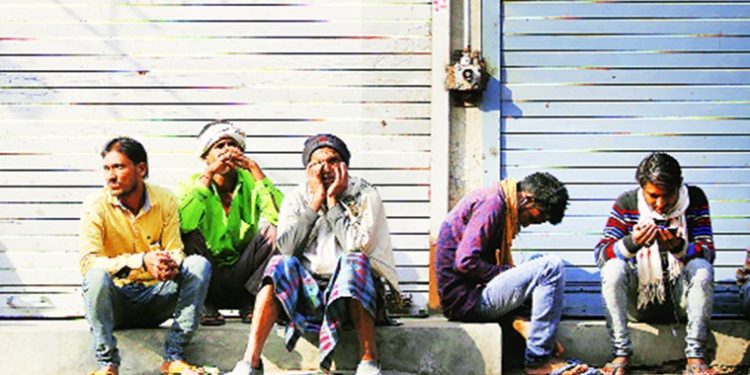New Delhi: Around a week ago, newly-wedded Rishi Kumar took a train to Delhi from Moradabad railway station, hoping he would return with a gift for his wife next month.
Kumar, who works for a packers and movers company and resides in a one-room house near Kashmiri Gate with three others, packed his bag Tuesday and headed to his Siras Kheda village without any gift.
“My employers told us a disease is killing people in thousands. They paid us for the week and asked us to leave. There hasn’t been much business over the last few days,” Kumar said. He was worried about how will he repay the money he took from his relatives for the wedding.
The coronavirus outbreak in the national capital has hit a large number of daily wagers, roadside vendors and labourers who come here in search of livelihood.
Many have been returning to their villages due to lack of work opportunity with the epidemic affecting the business in daily markets.
“It has hit everyday life here. The footfall has dropped drastically. My guy who delivers products to different stores in his tempo has also returned home in Uttar Pradesh’s Baghpat,” said Dinesh Sharma, a wholesale supplier of species in Sadar Bazar. The 57-year-old businessman said two of his eight workers have also left for their respective villages in Bihar.
Meethu’s roadside ‘chaat bhandar’ in Daryaganj is also a desolate place these days and he has been wrapping up his business early in the evening.
“I have suffered losses for the last few days. I earn just enough to pay for the rented accommodation my family lives in and daily use items. I heard there’s no cure of the new disease people are scared of. I have no clue what will become of people like us if the situation continues,” informed Meethu.
Tilak Ravi, 32, a vendor selling belts in Chandni Chowk, said he heard the coronavirus attacks people who eat rats and bats and alcohol keeps it at bay. “People are staying indoors and mostly soaps and masks are selling,” he said. “Belts… no chance,” he added.
Ravi is not concerned when informed that street vendors have the risk of contracting the disease as they come in contact with a large number of people daily.
“Street vendors, rickshaw pullers, labourers came in contact with a number of people daily. We handle cash, talk to people without any protection. We have to do it for our living,” pointed out Ravi.
“Many people I know have returned to their places in neighbouring states. Their families called them back or they simply do not have work,” added Ravi.
The National Association of Street Vendors of India (NASVI) has also said the Delhi government’s decision to ban weekly markets till March 31 as a precautionary measure will have an adverse impact on the livelihoods of street vendors. The association said it will write to the city government to reconsider its decision.
Agencies






































